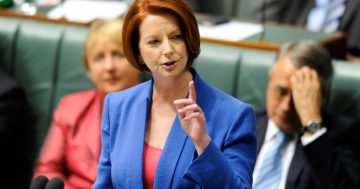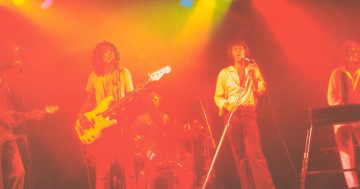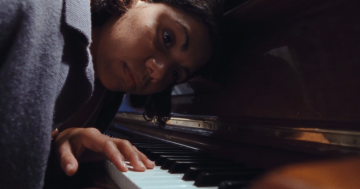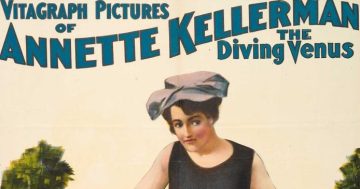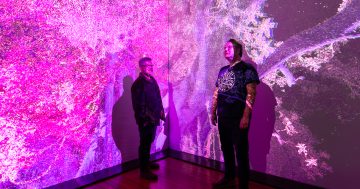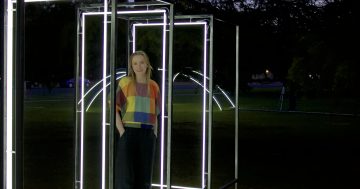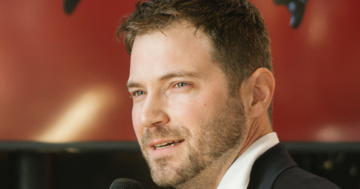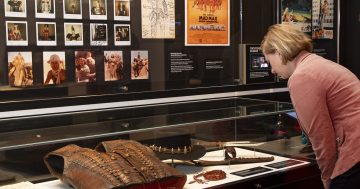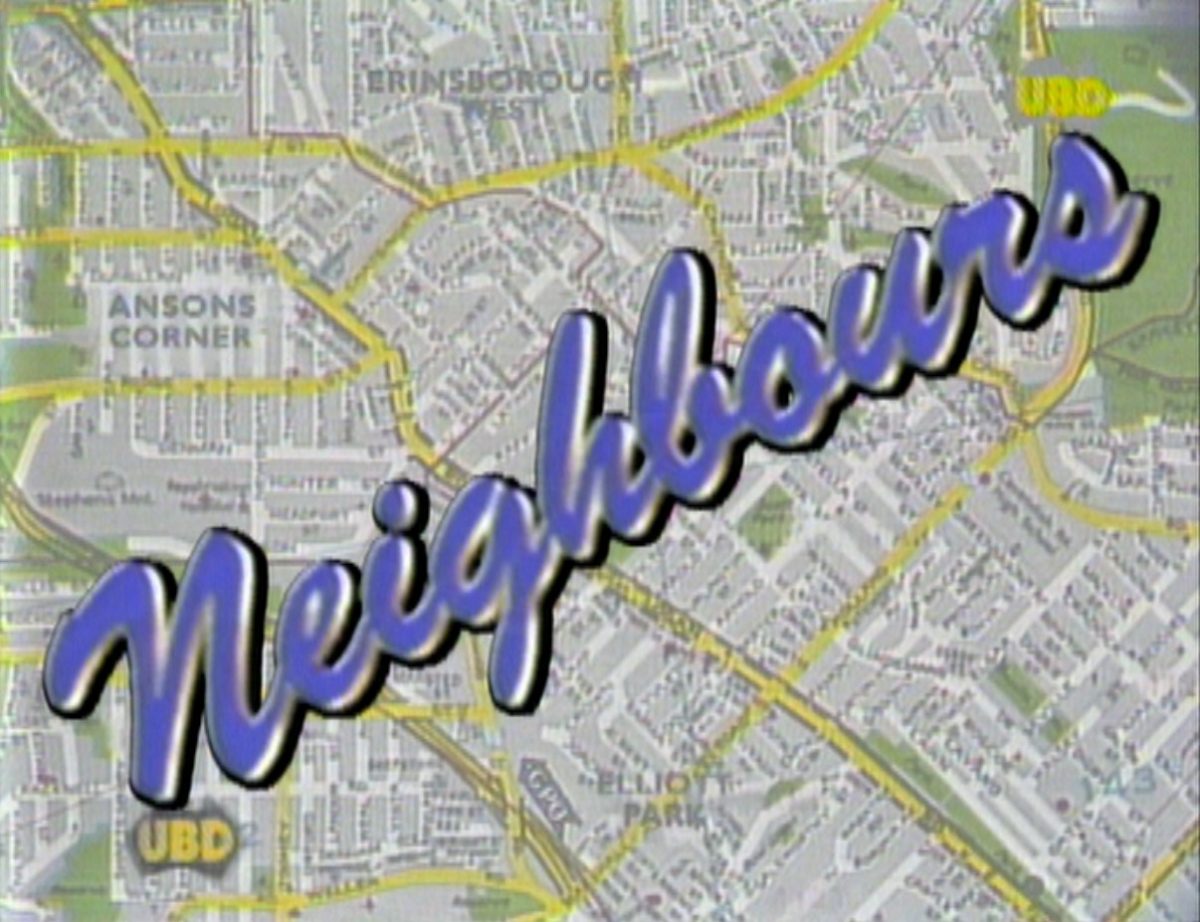
Everyone loves their … Neighbours, and the theme song too. The former TV soapie’s song has been recorded for posterity on the NFSA’s Sounds of Australia. Photo: NFSA.
They were the sounds that shaped Australia: from the Bee Gees singing of their determination to stay alive to Sister Janet Mead, hailing the good word from way on high to a cracker of a hit by the neighbourly Barry Crocker.
Thanks to Canberra’s National Film and Sound Archive (NFSA), these songs – and a lifetime more – will stay with us, earworm-like, forever.
Public nominations have just opened for the 2023 additions to the NFSA’s Sounds of Australia registry, which reflects the power of audio to inform and shape Australian culture.
They can be popular music, advertising jingles, spoken word or radio broadcasts –- anything that makes its mark on you now, and future generations down the track. Successful nominations, voted on by a panel of audio industry experts, will live on forever in the NFSA vaults. All nominations must be at least 10 years old.
The NFSA’s Sounds of Australia registry was established in 2007. Curator Nick Henderson said it selected the nominations on the strength of their cultural, historical and aesthetic relevance, and their ability to inform or reflect life in Australia.
“We want to hear from everyone about the sounds they think will last the test of time,” Mr Henderson said.
“Which sounds speak to Australian history, to our culture and to our diversity?
“We can’t wait to find out what Australians think.”
Past additions have been as diverse as the nation itself, ranging from Dame Nellie Melba to The Easybeats and The Saints, former Prime Minister Kevin Rudd’s Apology to the Stolen Generations, the Louie the Fly jingle, Gough Whitlam’s 1975 Dismissal speech, Took The Children Away by Archie Roach, the sound of a lyrebird in a sanctuary, Helen Reddy’s I Am Woman, Majestic Fanfare from ABC News and Paul Keating’s Redfern Address.
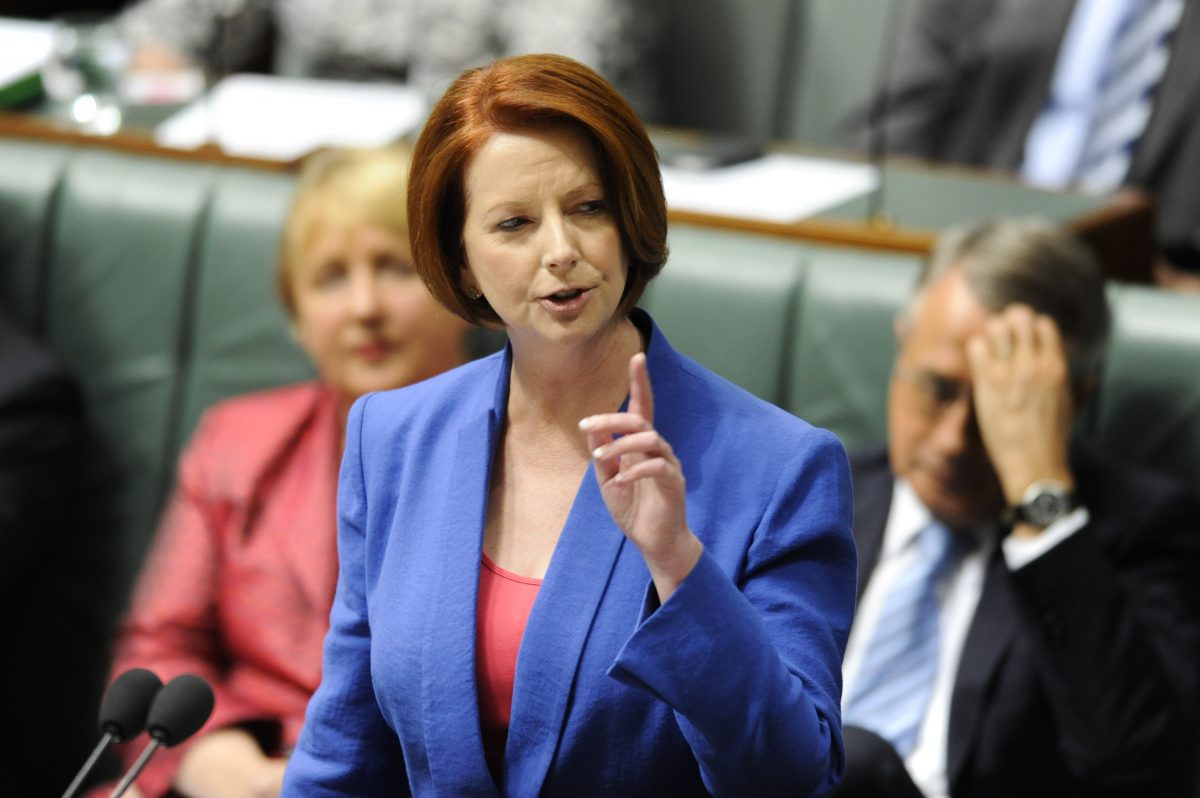
Former Prime Minister Julia Gillard delivers what became known as The Misogyny Speech to Federal Parliament on 9 October, 2012. Photo: NFSA.
Last year’s successful nominations were: Farewell address, Hallam Lord Tennyson (1904); Digger, Jack Lumsdaine (1942); Horrie Dargie Concert, The Horrie Dargie Harlequintet (1952); The Drover’s Dream, The Bullockies’ Ball, The Bushwhackers (1956); Out with the old and in with the new [decimal currency jingle], Ted Roberts (lyricist) (1965); The Lord’s Prayer, Sister Janet Mead (1973); Stayin’ Alive, The Bee Gees (1977); Neighbours theme song, Barry Crocker (Tony Hatch and Jackie Trent) (1987); Bicentenary protest coverage, Radio Redfern (1988); and The Misogyny Speech, Julia Gillard (2012).
The NFSA’s audio collection covers more than 120 years of Australian sound and contains more than 300,000 items. Ongoing digitisation programs have already preserved more than 100,000 fragile recordings.
Nominations for this year’s sounds close on 17 July. You can nominate your favourite sound here.
The complete list of the Sounds of Australia is available on the NFSA’s website.












